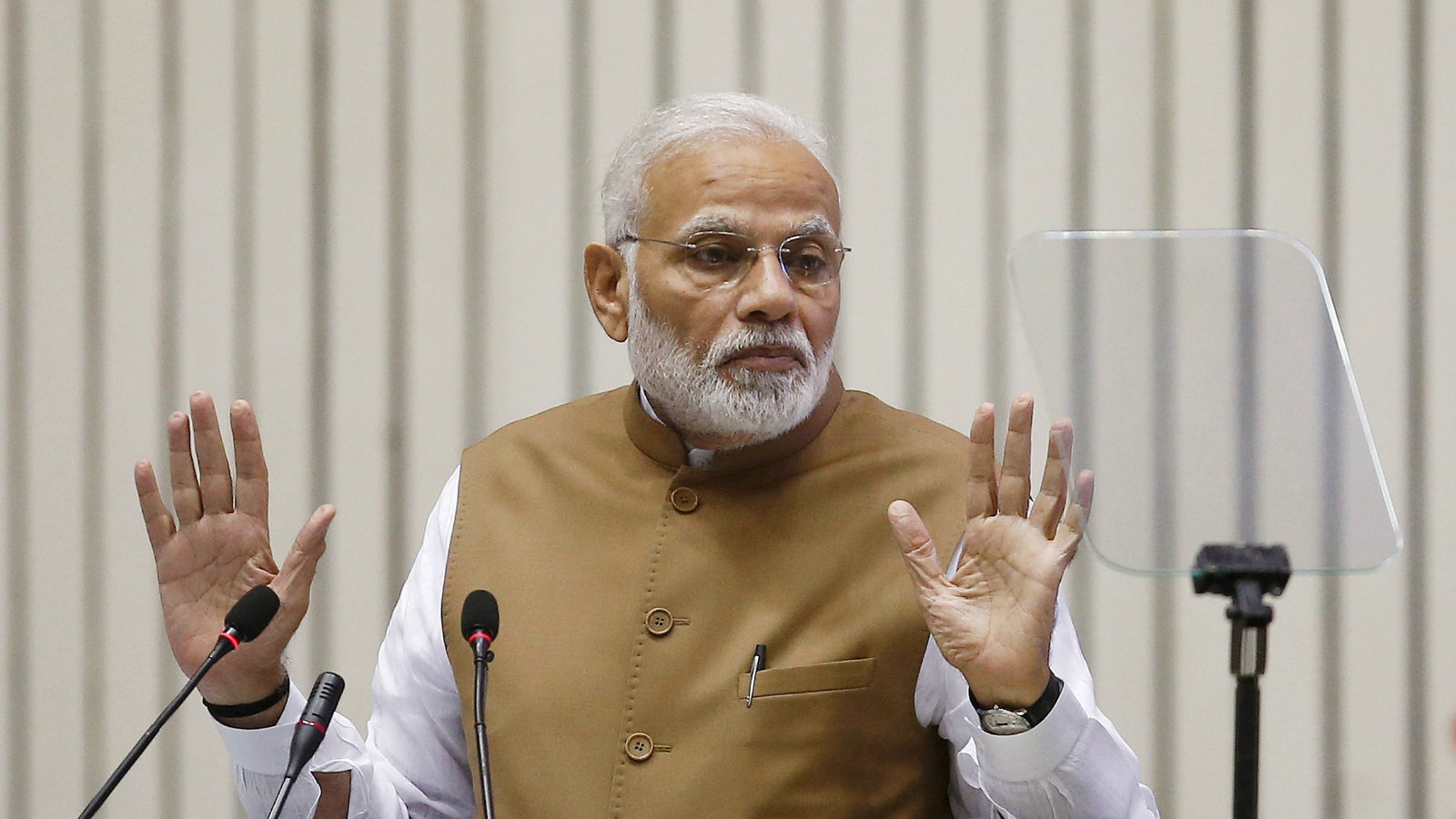Charted: Narendra Modi’s strong, but uneven, popularity in India
The results of what is touted as India’s largest-ever independent political survey are in.


The results of what is touted as India’s largest-ever independent political survey are in.
They present a strong overall showing for Narendra Modi, but also reveal some chinks in his armour. As his term comes to a close next year, the Indian prime minister is not so popular in the southern states and is also relatively weaker among some key groups.
The 12-question survey polled over 5 million people between Oct. 05 and Oct. 21, and was conducted jointly by the homegrown news app Dailyhunt and the market research firm Nielsen India. It received over 5 million unique responses from 95% of India’s pin codes via the Dailyhunt app, which claims to have 155 million monthly active users and 27 million daily active users.
Around 63% of the respondents said they trusted Modi more than, or just as much as, in 2014, when he was first elected to the Indian parliament. Over 50% said they believed Modi would bring about a better future if given a second term.
A look at the demographic breakdowns within the results, however, reveals some weak spots.
Respondents in Telangana, Kerala, Andhra Pradesh, and Tamil Nadu—all in southern India—were far less likely than Indians elsewhere to believe that Modi would bring a better future for their families.
The state of Karnataka, though, was an anomaly within south India. The prime minister received high scores on the questions of trust and a better future there.
The survey also considered socioeconomic status by taking note of what type of handset a respondent was using, drawing distinctions between those using “low-end phones” (priced under Rs9,999), mid-end phones (between Rs10,000 and 19,999), and high-end phones (over Rs20,000). Trust levels in Modi, the survey found, were around 1.5% higher for respondents using low-end and mid-end phones as opposed to those using high-end phones.
Women were consistently less likely than men to show trust in Modi, or believe he would ensure a better future.
Rasheed Kidwai, a political analyst and senior fellow at the Observer Research Foundation, thinks the reason for this disparity may be because women across India feel economic pressures, such as those of rising petrol prices, more acutely than men do. “In many Indian houses, women run the kitchen. So if the price of petrol is rising all the time and it has a cascading effect on goods and groceries, [the difference in confidence] may be a reflection of that,” he told Quartz.
Kidwai also noted that, while he was not surprised that the survey found Modi hugely popular, this may not exactly be an indicator of the Bharatiya Janata Party’s performance in 2019. The surveyors agree with this, too, with Dailyhunt president Umang Bedi saying multiple times during the report’s launch that it was not about politics but about democracy.
Because India does not follow a presidential system but a parliamentary system, Kidwai said, far more depends on the performance of individual Lok Sabha candidates. “If a company is doing well, all the credit goes to the CEO. But in various units, there are deadlocks and one-upmanship, and all sorts of things are there. Not every manager will be as good as the star-performing CEO,” he said.
Read Quartz’s coverage of the 2019 Indian general election here.